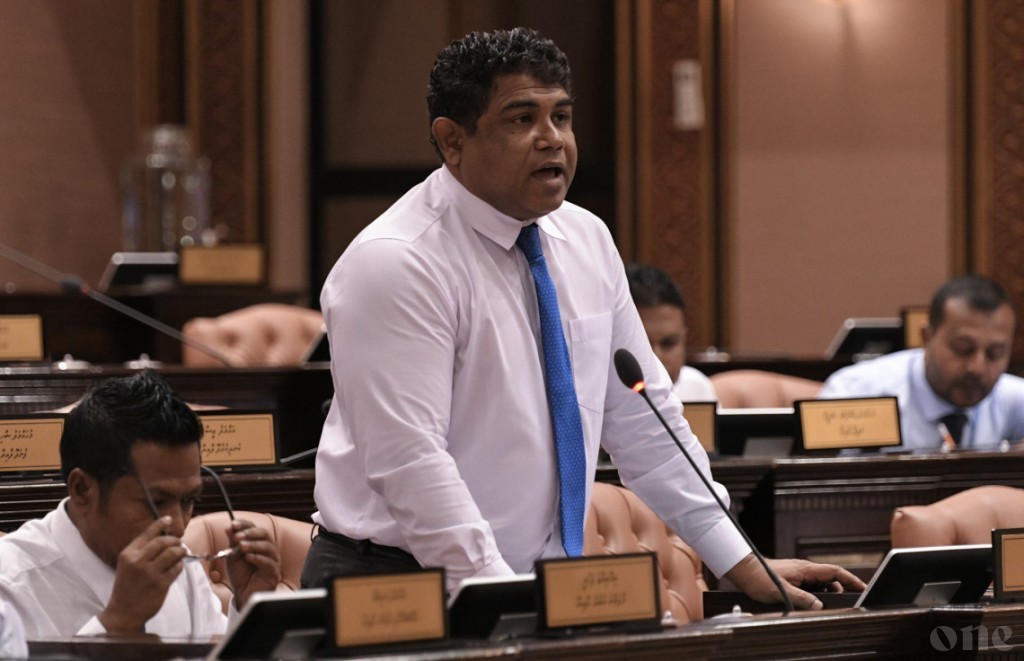Malé, Maldives – Maafannu central constituency member, Ibrahim Rasheed (Bondey) has said that any agreements made between Maldives and another country must be approved by parliament before it comes in to power.
MP Rasheed’s comments on the matter comes after the government fell under heavy criticism after a leaked draft agreement of Uthuru Thilafalhu, which the Maldivian government has declared to be fake.
MP Rasheed had told that any treaties or bilateral agreements made between Maldives and other countries must be approved by the parliament and that such agreements would not be legally binding unless the parliament approved it.
According to the draft agreement, armed Indian forces would be stationed in the Uthuru Thilafalhu area for a period of 30 years, which is to be developed into a harbor and dockyard for the purposes of the Maldivian Coastguard. It also said that should either party not object, the agreement period would be extended by a period of additional 30 years.
While the opposition continues to claim that the agreement is real, the Maldives National Defense Force released a statement saying that the ministry would not do anything which would implicate the sovereignty and independence of Maldives and also requested not to disperse information which might implicate the relations with neighboring countries.
Addressing similar concerns at the time of signing the agreement during February, MNDF reassured the public that no armed personnel would be stationed at the site, detailing that it would only be used to dock and repair Coastguard vessels.
While Indian Military presence in Maldives has been a great cause of distress to the current opposition, who have even launched an “#IndiaOut” campaign, the development of this harbour and dockyard in Uthuru Thila Falhu was included under the Defence Action Plan signed between India and Maldives in 2016 – when the opposition was in power and the country was led by former president Abdulla Yameen Abdul Gayyoom.
The project will be carried out in two phases, with the construction of the harbour and dockyard expected to be completed within the first three years. The site will also have a naval harbour with communication equipment and resources, radar services, along with training facilities.





